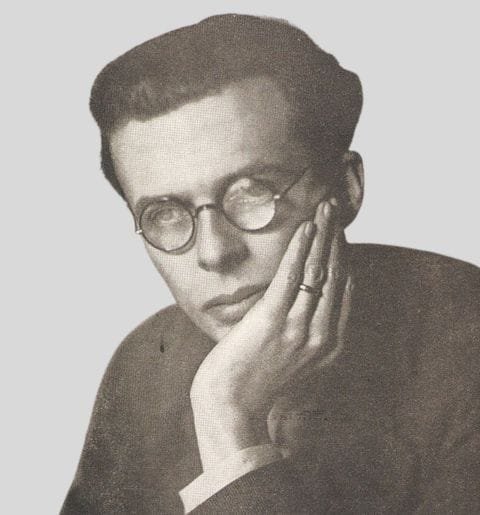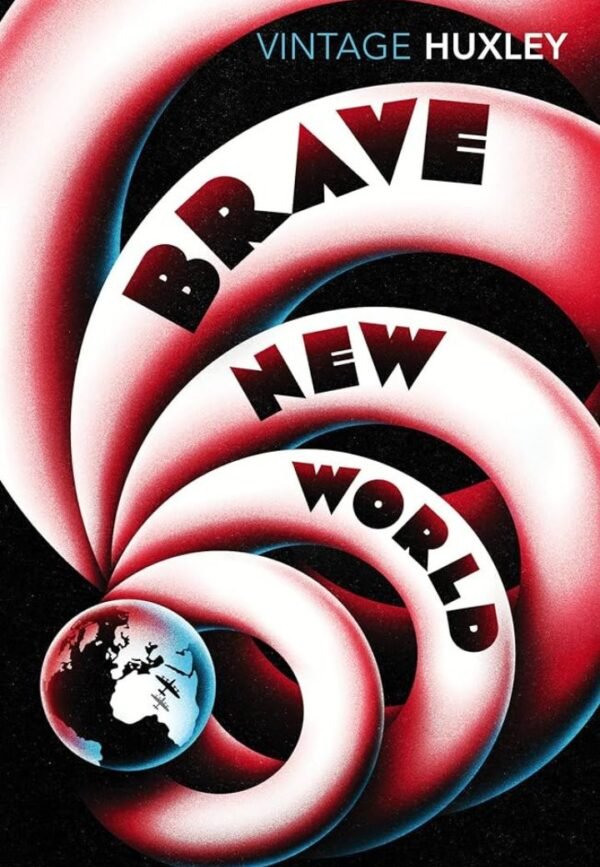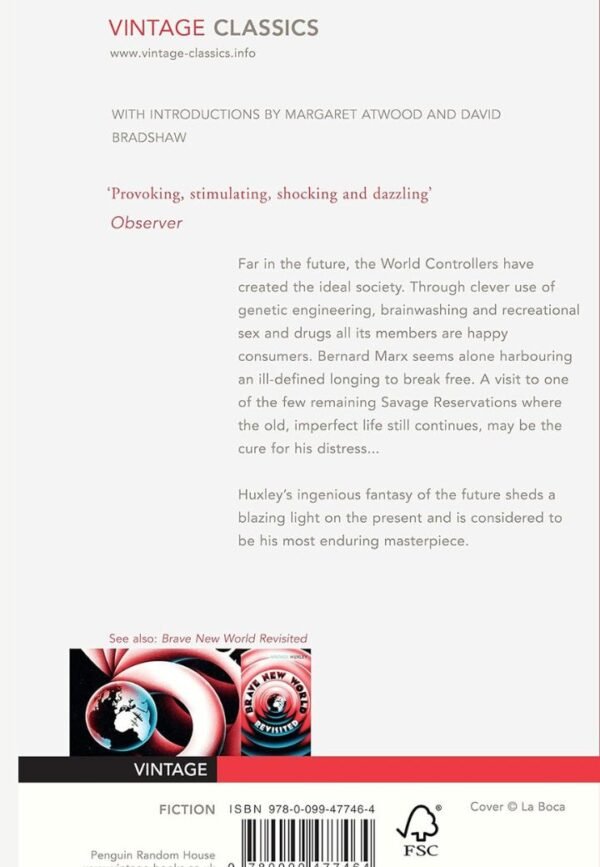
Aldous Huxley
Aldous Huxley (July 26, 1894 – November 22, 1963) was an English writer and philosopher best known for his dystopian novel Brave New World (1932), which explores themes of technological advancement, consumerism, and societal control. Born in Godalming, Surrey, into a prominent family of intellectuals, Huxley faced significant challenges early in life, including an eye disease that left him partially blind for several years. This setback redirected his ambitions from medicine to literature.
Huxley graduated from Balliol College, Oxford, in 1916 and began his literary career with the publication of Crome Yellow (1921), a satirical novel that established his reputation. He followed this with several successful works, including Antic Hay (1923) and Point Counter Point (1928). However, it was Brave New World that solidified his status as one of the foremost writers of the 20th century. The novel’s chilling vision of a future society where happiness is achieved through dehumanization has had a lasting impact on literature and culture.
In addition to fiction, Huxley’s prolific output included essays, poetry, screenplays, and philosophical works. He moved to the United States in 1937 and became involved in Hollywood as a screenwriter while continuing to write influential non-fiction, such as The Doors of Perception (1954), which explores his experiences with psychedelics. Huxley died on the same day as President John F. Kennedy, but his literary legacy endures as a critical voice on the implications of modernity and human existence.
- Dystopia, Utopia, Human Experience, Satire, Essays
- 1894
- Male
- 1


